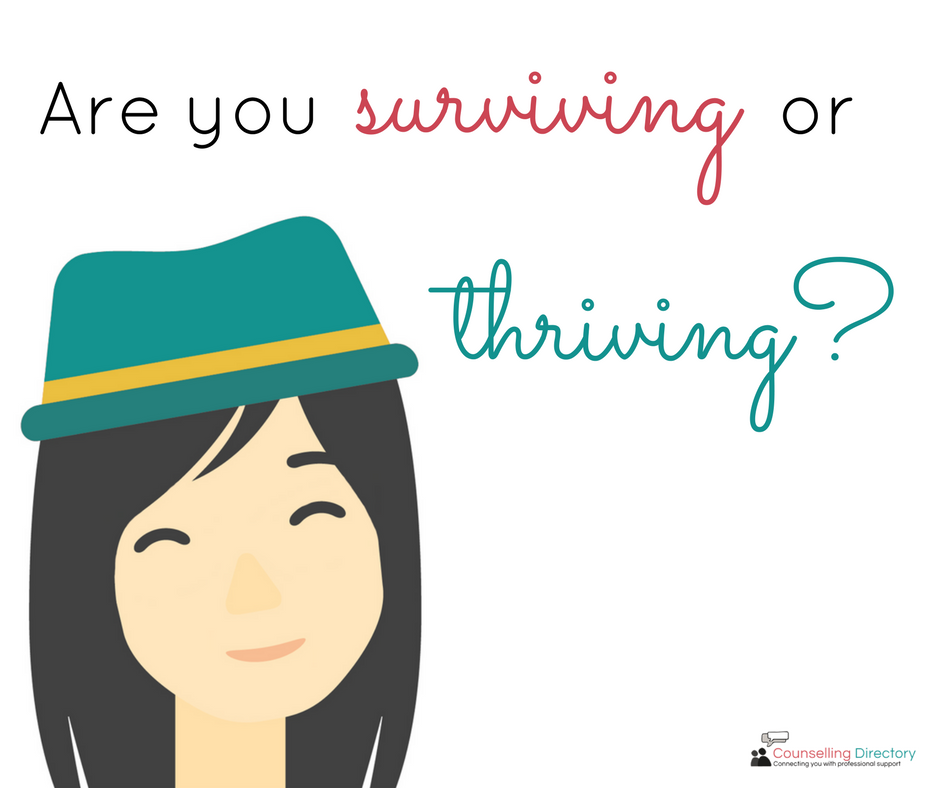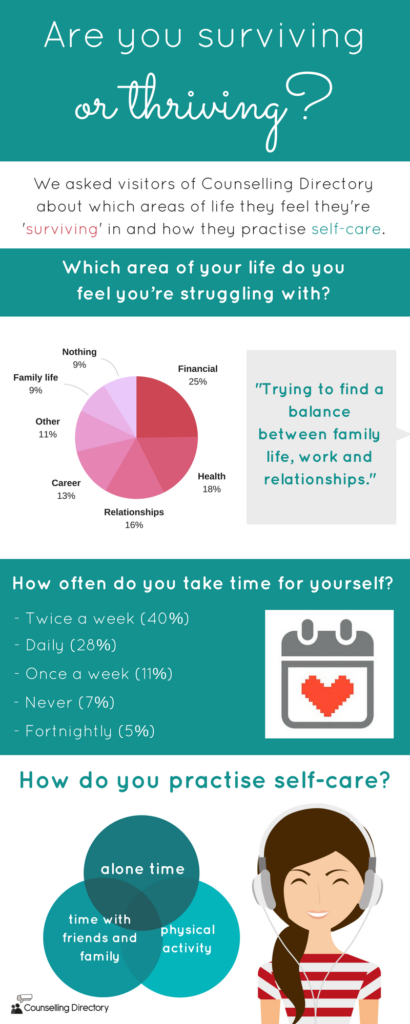Are you surviving or thriving?
Today marks the beginning of Mental Health Awareness Week, an annual campaign run by the Mental Health Foundation created to help raise awareness and eradicate stigma. This year the campaign is centred around whether or not we are ‘surviving’ or ‘thriving’.

The hope of the campaign is to understand why many of us feel stuck in ‘survive’ mode, rather than thriving with good mental health. Considering this question in the office, we kept coming back to one answer:
We’re not taking enough time for self-care.
Whether you’re currently dealing with a mental health problem or not, looking after yourself is essential for good mental health. To investigate our theory, we asked visitors of Counselling Directory a few questions to see which areas of life they feel they’re struggling with and how they practise self-care – here are the results:
Which areas of your life do you feel you’re struggling with? (top three results)
Financial (25%)
Many respondents said they struggle with their financial situation. Financial strain can have a huge effect on our well-being and is probably the trickiest area to improve without support. Remember there is always help available, try contacting the Money Advice Service for free, impartial advice.
Health (18%)
Another area of concern for respondents was health. We obviously talk a lot about mental health here at Counselling Directory, but your physical health has a direct impact on your well-being. Eating well and being physically active both fall into the remit of self-care, so remember to add this to your list.
Relationships (16%)
16% of respondents feel they’re struggling with their relationships. Having positive relationships can lift us when we’re down, so dedicating time to improve your relationships should factor into your self-care practice.
How do you practise self-care? (top three results)
Spending time alone (54%)
Alone time gives us the space to process our thoughts and the time to do what our bodies and minds need. Look to schedule some ‘me time’ where you can relax, reflect and rest.
Spending time with friends and family (48%)
As important as alone time is, staying connected and spending time with loved ones is another important part of self-care. Nurture your relationships and take time to have fun together.
Physical activity and well-being (45%)
As we have previously mentioned, exercise is important for both physical and mental health, so should not be forgotten when tackling self-care. Try to find an activity you enjoy and have fun doing.
How often do you practice self-care?
- At least twice a week (40%)
- Daily (28%)
- Once a week (11%)
Worryingly 7% of our respondents said the never practise self-care. If you struggle to find time, try to incorporate small actions that can become habits. For example, every morning before getting up you could spend five minutes meditating on what you want from your day.
We know small actions like this won’t necessarily stop us from feeling down or struggling with mental health, but they can help us feel more able to cope during times of ‘survival’. Put yourself at the top of your priority list and remember that you can’t pour from an empty cup.
If you’re struggling, speaking to a professional can help you identify ways to self-care and help you navigate difficult emotions.

Find the right counsellor or therapist for you
All therapists are verified professionals
